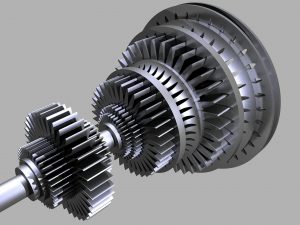Getting Technical Translations Right
 Ensuring accuracy in technical translations is one of the most important issues facing buyers of translation services today. With the multitude of free translation tools available and agencies based all over the world offering vastly different levels of quality and service, many companies requiring translation services are confused as to the best method of approaching the subject. In this article, we give some tips to improve the final quality of your technical translations.
Ensuring accuracy in technical translations is one of the most important issues facing buyers of translation services today. With the multitude of free translation tools available and agencies based all over the world offering vastly different levels of quality and service, many companies requiring translation services are confused as to the best method of approaching the subject. In this article, we give some tips to improve the final quality of your technical translations.
Internal Staff/Distributors
Many companies consider using internal staff or distributors to translate their material. This certainly has some advantages, such as lower cost and insider product knowledge, however good distributors do not always make good quality translators. It is also not uncommon for distributors to add or remove content to suit their requirements, which can lead to problems and even legal implications further down the line. If you decide go down this route, we would recommend keeping the process under tight control. Using an internal resource or distributor can also result in a delayed translation as they struggle to balance sometimes large translation projects and their day job. However, distributors can be extremely useful when it comes to defining terminology on which to base the translation. A good translation agency can use this to build a bilingual glossary or Termbase; these tools then automatically alert the translator when a pre-defined term occurs in the text, ensuring only your preferred terminology is used in the translation.
Translation Memory
On a related subject, it is vital to ensure that your chosen agency uses a Translation Memory tool. Not only will this help reduce costs and maintain consistency in the document you are translating, but it will also be invaluable for future work. For example, if your different product manuals contain similar phrases or sections, such as safety warnings, these will be available in your Translation Memory and will not need translating from scratch each time, leading to significant cost savings. Translation Memories lend themselves especially well to technical translation, so it’s important to ensure these are used and to adopt a process to manage your Translation Memories in an efficient way.
Track Record in Technical Translations
It is also important to make sure the agency has a good track record in technical translations. References from similar companies to your own and sample translations are good indicators of how well the process will go. It goes without saying that the translator must be professionally qualified and a native speaker of the target language, but it is equally important that they specialise in technical translations in order to produce a piece of work that is easily comprehensible to the reader. Once you have selected the translator/agency, give them adequate time to conduct the translation. It takes time to create a quality piece of work and, although it is possible to turn large projects around quickly, a piece of work that is rushed may not read as well as one where the translator has time to carefully read over their work.
Complex File Formats
We would also encourage you to ask your translation agency about the file formats they can handle. Increasingly, companies are generating technical content within content management systems and a good agency will have no problem handling content in .xml or .xliff, or even, for example, Framemaker or Robohelp files. There should be no surcharge for working in this way so it’s worthwhile asking the agency what formats they can work with before assuming that they cannot handle the native files.
Screenshots/Labels
Finally, it is important to highlight whether any software screenshots or labels that are referenced in the content have been translated. If a printed label on a piece of machinery, for example, is to remain in English when used in Germany, the translated manual will typically leave the label in English accompanied by a key or legend with the translated text. You may also want to consider changing any imperial measurements to metric, according to the territory using the translation.
Each translation project is different and there are other potential elements to consider on your project, but these are the main points that we would recommend considering on every technical translation you have to commission.
If you have a requirement for technical translations, please do not hesitate to contact us via your Account Manager or through our website.
